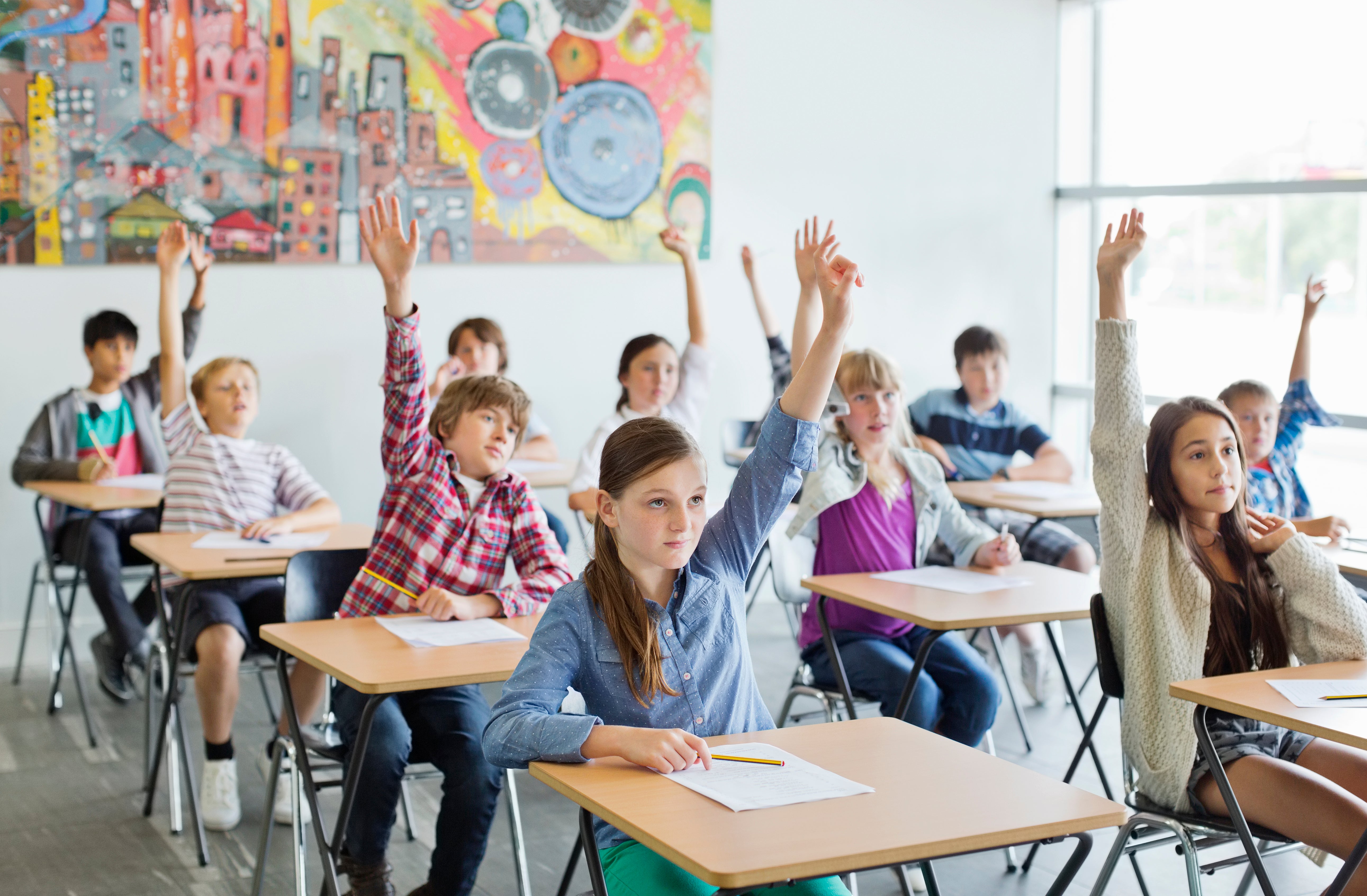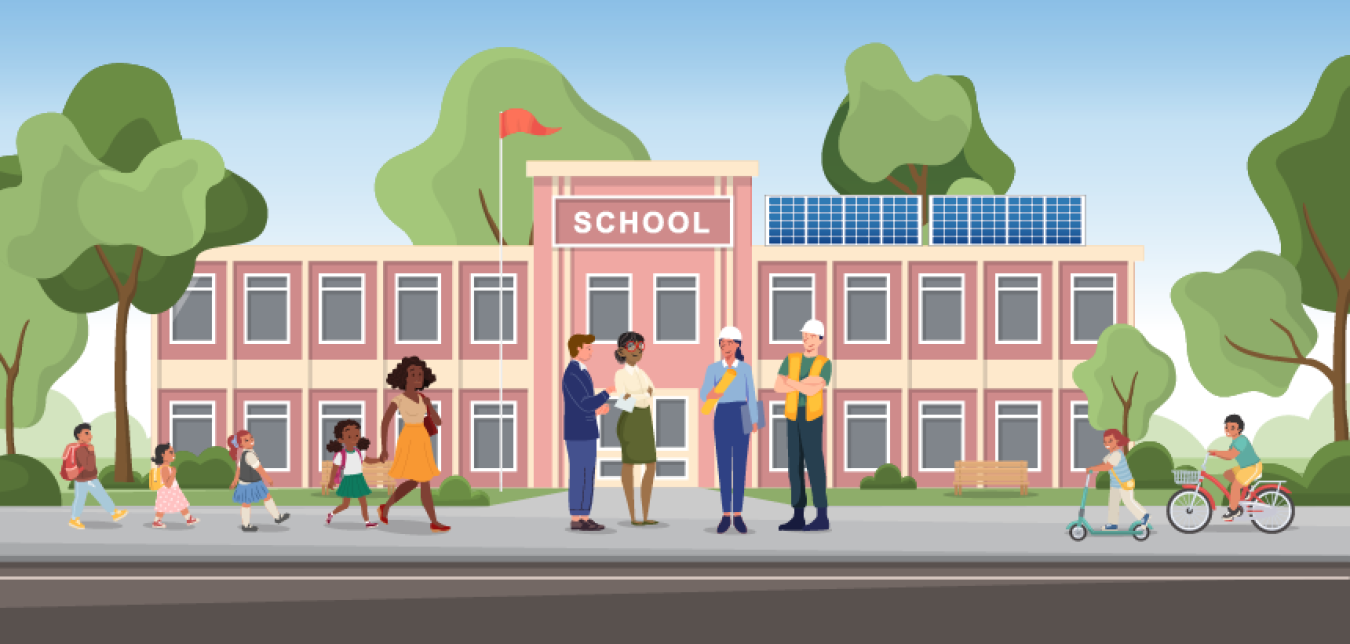The Importance of Local Assistance to Save Temecula Schools Today
The Importance of Local Assistance to Save Temecula Schools Today
Blog Article
Comprehending the Relevance of Institutions in Youngster Growth and Area Growth
Institutions' interaction with regional communities via service-learning initiatives strengthens the bond between families and academic organizations. This symbiotic relationship highlights the significance of schools in supporting energetic citizenship and long-lasting discovering routines.
Academic Success
Academic achievement works as a keystone of kid advancement, supplying the foundation whereupon future learning and success are developed. Schools play a critical function in promoting this academic development, providing organized atmospheres where kids can acquire vital knowledge and cognitive abilities. Standardized curricula guarantee that students gain effectiveness in core subjects such as mathematics, science, and language arts, which are critical for both greater education and expert possibilities.
Along with giving basic academic abilities, schools also grow important thinking, analytic capacities, and intellectual interest. These cognitive expertises are crucial for navigating intricate real-world circumstances and adjusting to the ever-evolving demands of the contemporary office. Teachers, as facilitators of knowing, use diverse instructional approaches to accommodate different learning designs, thus making best use of individual student capacity.
In addition, academic success is closely connected to self-esteem and motivation. Youngsters who experience scholastic success are most likely to establish a favorable self-concept and a long-lasting enthusiasm for knowing. Institutions additionally use different sources, such as collections and modern technology, which additionally boost the instructional experience and prepare students for a technically advanced society.
Social Skill Advancement
Beyond academic success, the duty of colleges in social ability advancement is vital. Schools act as a key location for children to learn and practice essential social abilities such as collaboration, dispute, and communication resolution. In the structured atmosphere of a classroom, trainees connect with peers, teachers, and other college personnel, supplying various opportunities to develop these vital capabilities.
Reliable social skill growth in colleges is promoted with team tasks, collaborative projects, and extracurricular programs. These interactions assist students understand social standards, construct empathy, and foster a feeling of area. For circumstances, group assignments instruct trainees how to collaborate in the direction of a common objective, listen to different point of views, and navigate disagreements constructively.

The cultivation of social abilities during academic year lays a structure for future personal and expert partnerships. Save Temecula Schools. As pupils mature, the capability to properly communicate and work together becomes progressively essential, underscoring the school's critical role in alternative kid growth
Exposure to Diversity
Exposure to diversity in institutions is basic to fostering an inclusive way of thinking and broadening trainees' viewpoints. Schools work as a microcosm of the more comprehensive society, and experiencing diverse societies, languages, and socioeconomic histories within this setting gears up trainees with essential skills for browsing an increasingly globalized world. This direct exposure encourages empathy, minimizes bias, and advertises mutual regard among peers.
Varied class likewise enhance cognitive and social growth. Research shows that trainees who engage with peers from diverse histories exhibit better analytic abilities and imagination. They find out to value different viewpoints, which enriches classroom discussions and fosters a more dynamic learning experience. In addition, this understanding of variety prepares trainees for future workplaces that value modern skills.

Community Engagement
The benefits of diverse class expand past the college walls, fostering a solid feeling of area involvement amongst trainees. By interacting with peers from various cultural, socioeconomic, and ethnic backgrounds, students get a more comprehensive viewpoint and a gratitude for diversity. This direct exposure encourages them to become active people that want to contribute positively to their areas.
Schools that highlight community involvement often best site incorporate service-learning projects, which permit trainees to resolve real-world troubles while using scholastic skills. These projects not only enhance students' understanding of their coursework but additionally impart a feeling of duty and empathy. Furthermore, partnerships in between colleges and regional organizations provide trainees with possibilities to take part in neighborhood events, further strengthening their function as proactive area members.
Furthermore, parental and community participation in colleges strengthens the bond between educational organizations and the areas they offer. Through these initiatives, colleges play a pivotal function in supporting area engagement and promoting societal development.
Lifelong Understanding Habits
Creating long-lasting learning practices is vital for a child's continuous growth and versatility in an ever-changing world. Colleges play a critical function in instilling these routines by producing an atmosphere that cultivates interest, important reasoning, and a love for expertise. Via extracurricular activities and diverse curricula, educators urge pupils to discover different subjects, analyze info critically, and apply their learning to real-world our website scenarios.

Additionally, schools provide an organized environment where children can establish self-control and time management skills, both of which are vital for constant knowing. By emphasizing the importance of establishing objectives, reflecting on development, and adjusting techniques, schools prepare trainees to browse the intricacies of adult life, guaranteeing they remain lifelong learners and contributors to society.
Final Thought
Finally, schools are vital in promoting youngster development and neighborhood growth by supplying settings for scholastic success, social ability growth, and direct exposure to variety. Through collaborative projects and interactions, schools enhance essential thinking, empathy, and communication skills. Area involvement initiatives even more enhance the bond between local communities and instructional establishments. Inevitably, institutions grow long-lasting discovering routines, furnishing people with the required knowledge and abilities to add positively to society.
In the organized atmosphere of a classroom, pupils communicate with peers, educators, and various other institution team, providing numerous chances to create these vital capacities.
In essence, direct exposure to variety within schools not only improves individual trainees but also enhances the social textile of the community as a whole.
The benefits of diverse class prolong past the school walls, check out here promoting a solid sense of area involvement among trainees.Institutions that stress area interaction commonly include service-learning projects, which enable trainees to attend to real-world issues while applying scholastic abilities. Partnerships between institutions and regional companies provide students with possibilities to get involved in community occasions, better strengthening their duty as aggressive area participants.
Report this page